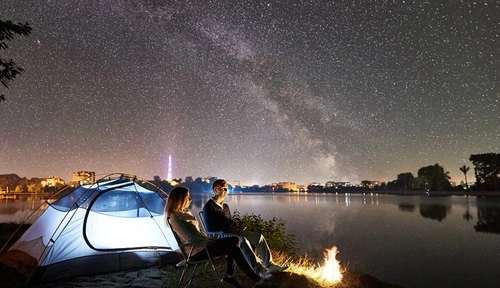No, it is not universally illegal to go to the beach at night, but access depends on local laws, beach-specific regulations, and the intended activities. Many beaches allow nighttime visits, while others impose curfews or restrictions for safety, environmental protection, or maintenance reasons.
Understanding Beach Access Laws in the United States
Beach access is governed by a combination of state laws, municipal ordinances, and individual beach policies. While daytime use is usually unrestricted, nighttime access often varies based on public safety, wildlife conservation, and local regulations.
1. Beaches with Curfews
Why Some Beaches Restrict Nighttime Access
Many public beaches close at specific times, such as sunset or 10 PM, for several reasons:
- Safety Concerns: Reduced visibility increases risks of accidents, drowning, or crime.
- Environmental Protection: Beaches with nesting sea turtles or fragile ecosystems often enforce curfews to minimize disturbances.
- Maintenance and Cleaning: Closing beaches at night allows municipal workers to clean and maintain the area efficiently.
Examples of Curfew Enforcement
- California: Some beaches, like Santa Monica State Beach, enforce a strict curfew from 10 PM to 6 AM.
- Florida: Popular beaches such as South Beach in Miami often close between midnight and 5 AM, although this varies by section and city ordinances.
- New Jersey: Many beaches along the Jersey Shore close at sunset or 9 PM, depending on the town.
2. Beaches Open 24/7
Open-Access Beaches
Certain beaches remain open to the public 24/7, especially in areas that emphasize tourism or have well-lit facilities for nighttime visitors.
- Example: Beaches like Waikiki Beach in Hawaii and some sections of Virginia Beach are open around the clock.
Regulations for Night Visitors
Even at beaches without curfews, there are often rules to ensure safety and preserve the environment:
- No camping without permits.
- Restrictions on bonfires, alcohol consumption, and loud noises.
- No interference with wildlife or nesting areas.
3. Penalties for Violating Beach Curfews
Violating a beach curfew or trespassing on a closed beach can result in legal consequences, including:
1. Fines: Typical fines range from $50 to $500, depending on local regulations.
2. Eviction: Law enforcement may remove violators from the beach.
3. Arrest or Criminal Charges: In cases of repeated violations or additional illegal activities, individuals may face arrest or misdemeanor charges.
4. Special Considerations for Nighttime Beach Access
Environmental and Wildlife Protections
- Beaches with significant wildlife activity, such as sea turtle nesting, often restrict nighttime access. Disturbing wildlife can lead to additional fines or penalties under state or federal law, including the Endangered Species Act.
Activities Requiring Permits
- Bonfires: Many beaches require permits for nighttime bonfires, and some prohibit them altogether.
- Fishing: Night fishing may be allowed but often requires a valid fishing license.
- Camping: Overnight stays typically require permits, even on beaches open 24/7.
Recent Legal Updates (2023-2024)
1. Increased Curfew Enforcement
Cities like Los Angeles and Fort Lauderdale have increased law enforcement presence at beaches during restricted hours to deter trespassing, vandalism, and illegal activities.
2. Expansion of 24/7 Access Beaches
States like Texas have designated more beaches as 24/7 access areas to encourage tourism, provided visitors adhere to local rules.
3. Environmental Protection Zones
States such as Florida and South Carolina have implemented stricter nighttime beach closures during turtle nesting season, with increased fines for violations.
FAQs About Going to the Beach at Night
Q1. Is it illegal to go to the beach at night?
Ans: No, it is not illegal in general, but some beaches impose curfews or require permits for nighttime activities. Always check local regulations.
Q2. Can I camp on the beach overnight?
Ans: Camping is typically prohibited on public beaches unless you have a permit or are at a designated camping area.
Q3. What happens if I’m caught on a beach after hours?
Ans: Penalties vary but may include fines, eviction, or, in some cases, arrest for trespassing.
Q4. Are there beaches open 24/7?
Ans: Yes, some beaches, like Waikiki Beach in Hawaii or sections of Virginia Beach, are open to the public at all hours.
Q5. Can I have a bonfire on the beach at night?
Ans: Bonfires are allowed on some beaches but usually require permits and compliance with local fire regulations.


